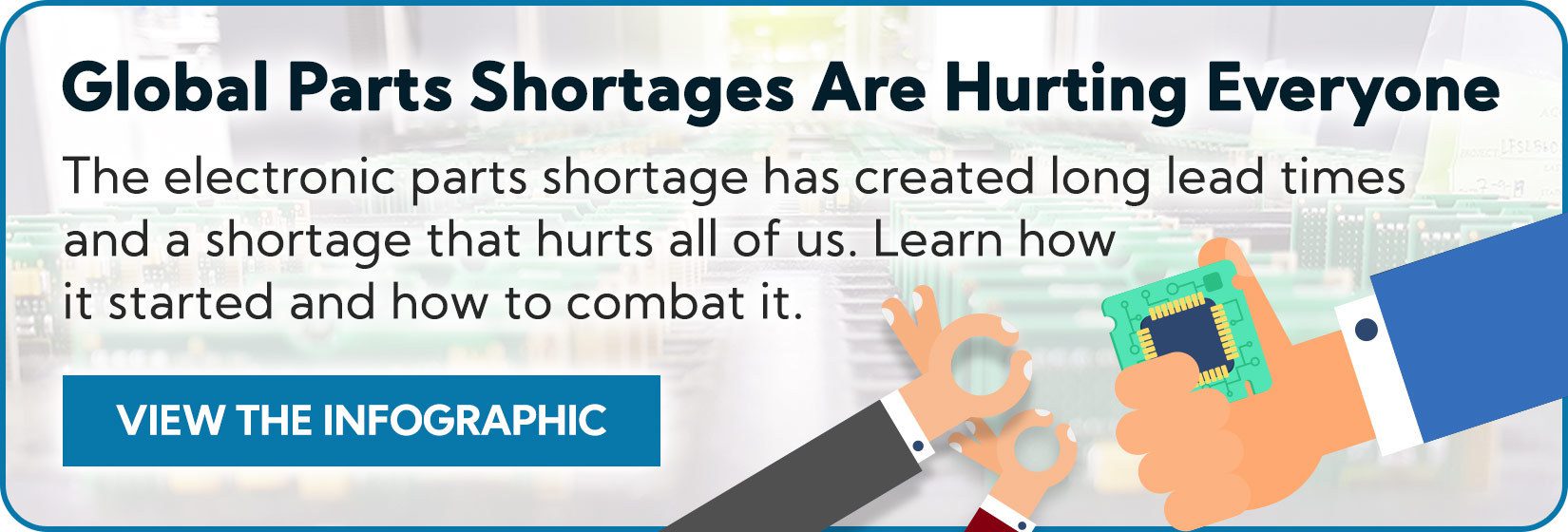Challenges and Solutions in Securing the Supply Chain for Defense Electronics
In a time when technology skills and worldwide competition are critical, protecting the supply chain for defense electronics is crucial for national security. From fighter jets to communication systems, the reliability and integrity of defense electronics are essential for military operations. However, ensuring the safety and resilience of these supply chains presents a host of challenges that demand innovative solutions. This article discusses the unique hurdles facing the defense electronics supply chain and explores risk mitigation strategies.

Complexity and Globalization
The modern defense electronics supply chain is intricate and globalized, involving numerous suppliers, subcontractors, and manufacturers spanning various countries. This complexity introduces vulnerabilities, as each node in the supply chain represents a potential point of exploitation. Furthermore, reliance on foreign suppliers raises concerns regarding intellectual property theft, counterfeit components, and supply disruptions due to geopolitical tensions or natural disasters.
Solution: To address these challenges, governments and defense contractors must enhance transparency and visibility throughout the supply chain. Implementing rigorous supplier vetting processes, conducting regular audits, and fostering closer collaboration with trusted partners can help reduce risks associated with globalization. Additionally, diversifying the supplier base and investing in domestic manufacturing capabilities can reduce dependence on foreign sources.
Cybersecurity Threats
As defense systems become more digitized, the integrity of the supply chain faces a notable risk from cybersecurity threats. Malicious actors, including state-sponsored hackers and cybercriminal organizations, target defense electronics suppliers to gain access to sensitive information, compromise data integrity, or disrupt operations through cyberattacks. The modern supply chain is highly connected, which means that if there’s a problem in one part, it can also cause problems in other parts.
Solution: Adopting robust cybersecurity measures is imperative to safeguard the defense electronics supply chain against cyber threats–including implementing encryption protocols, multi factor authentication, and intrusion detection systems to fortify digital infrastructure. Regular cybersecurity training for employees and suppliers can enhance awareness and resilience against phishing attempts and other social engineering tactics. Additionally, establishing information-sharing mechanisms and partnerships with cybersecurity experts can help proactively identify and minimize emerging threats.
Counterfeit Components and Supply Chain Integrity
Counterfeit electronic components present a widespread challenge in the defense industry, compromising product quality, reliability, and safety. These counterfeit parts often infiltrate the supply chain through unauthorized sources, posing significant risks to mission-critical systems. Detecting counterfeit components is challenging, as they are usually meticulously crafted to mimic genuine products, making visual inspection insufficient for identification. Moreover, the globalization of supply chains exacerbates this issue, making it difficult to trace the origins of components.
Solution: Defense organizations must implement robust authentication and verification processes to combat counterfeit components and maintain supply chain integrity. Utilizing advanced technologies such as blockchain and secure authentication tags can enable end-to-end traceability of components, ensuring their authenticity and origin. Collaborating with industry associations, regulatory bodies, and law enforcement agencies can facilitate information sharing and enforcement efforts to crack down on counterfeiters. Additionally, investing in research and development of anti-counterfeiting technologies can enhance detection capabilities and deter illicit activities.

Regulatory Compliance and Export Controls
Compliance with stringent regulatory requirements and export controls presents another layer of complexity in securing the defense electronics supply chain. International trade regulations, export restrictions, and compliance standards vary across jurisdictions, requiring meticulous adherence to ensure legal and ethical conduct. Failure to comply can lead to harsh penalties, harm to reputation, and interruptions in supply chain activities.
Solution: Establishing a robust regulatory compliance framework is essential for navigating the complexities of export controls and regulatory requirements, which involves conducting thorough due diligence on suppliers and partners to ensure adherence to applicable regulations and standards. Automated compliance management systems can streamline processes, enhance visibility, and reduce non-compliance risk. Furthermore, cultivating a culture centered on ethics and integrity within the organization via training and awareness initiatives can encourage compliance with regulatory standards and ethical conduct in business operations.
In conclusion, securing the supply chain for defense electronics is a multifaceted challenge that demands a comprehensive and proactive approach. By addressing the complexities of globalization, cybersecurity threats, counterfeit components, and regulatory compliance, all involved parties can enhance the resilience and integrity of the supply chain. Through collaboration, innovation, and strategic investments, the defense industry can alleviate risks and ensure the reliability of critical defense electronics for national security purposes.
Empower Your Defense Electronics Supply Chain with Levison Enterprises
In today’s rapidly evolving environment of global threats and technological advancements, securing the defense electronics supply chain is not just a priority – it’s a necessity. As highlighted in our recent article on the challenges and solutions in this critical area, the complexity and interconnectedness of supply chains, coupled with cybersecurity threats and regulatory requirements, demand proactive and comprehensive measures to ensure the integrity and reliability of defense electronics.
At Levison Enterprises, we recognize the seriousness of this task and are dedicated to being your partner in strengthening the defense electronics supply chain. With years of experience and a deep understanding of the intricacies involved, we offer tailored solutions to the unique challenges defense contractors and government agencies face.
We kick off our strategy with thorough supplier vetting procedures and risk evaluations to pinpoint and address potential weaknesses in the supply chain. Utilizing state-of-the-art technologies and adopting industry-leading practices, we deploy strong cybersecurity measures to defend digital infrastructure and shield against cyber threats. From encryption protocols to intrusion detection systems, we provide comprehensive solutions to fortify your defenses against evolving cyber threats.
By partnering with Levison Enterprises, you can empower your defense electronics supply chain with the resilience, transparency, and integrity it needs to meet today’s and tomorrow’s challenges. Contact us today to learn how we can support your efforts to safeguard critical defense assets and uphold national security.
Start Your Quote Now!